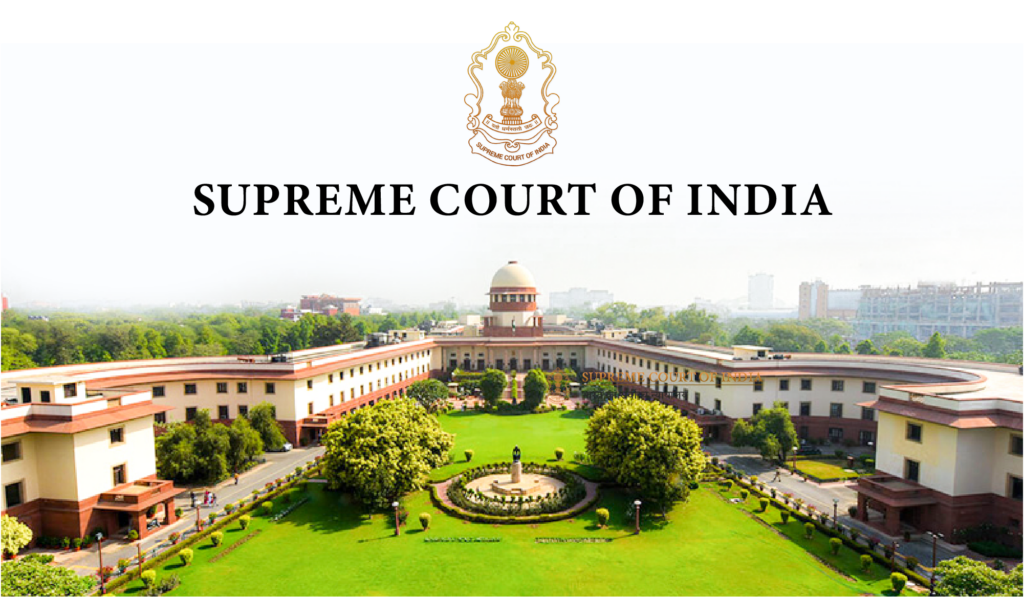In a significant development, the Supreme Court of India has taken suo motu cognizance of a controversial order passed by the Allahabad High Court, which ruled that grabbing a girl’s breasts and breaking the string of her pyjama does not amount to an attempt to rape. The apex court’s intervention has reignited a nationwide debate on the legal interpretation of sexual violence and the rights of survivors.
Allahabad High Court ruled that the acts did not constitute an attempt to rape
The case in question stemmed from an incident where the accused allegedly forcefully grabbed a minor girl’s breasts and attempted to remove her clothing by breaking the string of her pyjama. The prosecution argued that the actions clearly indicated an intent to commit rape. However, the Allahabad High Court ruled that these acts, though indecent and falling under sexual assault, did not constitute an attempt to rape under Section 376 and 511 of the Indian Penal Code (IPC).
The High Court’s rationale was that for an act to qualify as an ‘attempt to rape,’ there must be a direct and unequivocal step towards penetration. The judgment shocked legal experts and activists alike, with many arguing that the ruling set a dangerous precedent by narrowing the scope of what qualifies as an attempt to rape.
In response to widespread outrage, the Supreme Court, led by a bench headed by the Chief Justice of India (CJI), decided to take suo motu cognizance of the case. The CJI, in a special sitting, stated that the judicial interpretation of ‘attempt to rape’ must be aligned with the constitutional rights of women and the legislative intent behind criminal laws aimed at protecting them.

“This court has always upheld the dignity and bodily autonomy of women. A narrow interpretation of the law cannot serve the cause of justice,” observed the CJI during the proceedings. The Supreme Court issued notices to the Uttar Pradesh government, the Attorney General of India, and legal experts to present their views on whether the Allahabad High Court’s ruling was legally sound.
Legal scholars and activists strongly criticized the High Court’s judgment, warning that it could embolden perpetrators of sexual crimes. Feminist groups and human rights organizations organized protests across several cities, demanding a broader interpretation of ‘attempt to rape’ that takes into account the survivor’s trauma rather than relying solely on outdated legal technicalities.
Senior advocate Indira Jaising argued, “An attempt to rape should not be seen only from the perspective of the perpetrator’s incomplete act but from the fear, violence, and intent involved in the attack. The psychological and physical trauma inflicted on the survivor should be central to any judicial interpretation.”
Former Supreme Court judge Justice Madan B. Lokur also weighed in, stating that courts must take a victim-centric approach in cases of sexual violence. “The law should not be reduced to a mechanical interpretation of penetration. If a woman is assaulted in a manner that indicates clear sexual intent, the act should qualify as an attempt to rape,” he said in a panel discussion.
Revisiting the Definition of Attempt to Rape
The Supreme Court’s decision to intervene in the matter has reignited discussions on the need to redefine ‘attempt to rape’ in Indian jurisprudence. While the IPC provides broad definitions of sexual assault and rape, legal experts have often debated what constitutes an ‘attempt’ in cases where penetration has not occurred but the intent is evident.
The National Commission for Women (NCW) has called for amendments to the IPC to explicitly recognize acts of sexual aggression that stop short of penetration as ‘attempt to rape.’ They argue that India should take inspiration from progressive international legal frameworks that recognize various forms of sexual violence, rather than relying on rigid legal interpretations.
As the Supreme Court prepares to hear arguments from all stakeholders, the case is expected to have a far-reaching impact on India’s legal landscape. If the apex court overturns the Allahabad High Court’s ruling, it could establish a new legal precedent that ensures better protection for survivors of sexual violence.
In the meantime, activists, lawyers, and citizens alike are closely watching the proceedings, hopeful that the Supreme Court’s intervention will reinforce the principles of justice, dignity, and safety for women in India.





